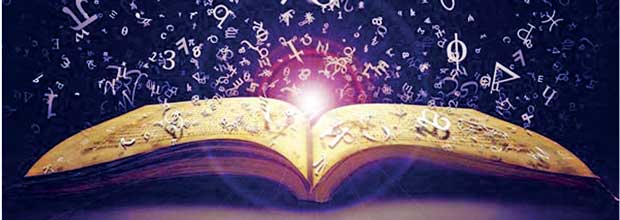19 May 2017 - {{hitsCtrl.values.hits}}

 Man’s fascination with certain numbers goes back to the dawn of recorded history. For the Ancient Babylonians the most meaningful number was 60. They based their mathematics and calendar around it — and we, many centuries later, have inherited their system. That’s why an hour has 60 minutes, and a minute 60 seconds.
Man’s fascination with certain numbers goes back to the dawn of recorded history. For the Ancient Babylonians the most meaningful number was 60. They based their mathematics and calendar around it — and we, many centuries later, have inherited their system. That’s why an hour has 60 minutes, and a minute 60 seconds.
A hotelier and tour operator, better known as the founder of the Asian-German Sports Exchange Programme (AGSEP) headquartered at Marawila, Dr. Doering is a keen student of
the Occult.
Significance of 12 and 60
In Ancient Egypt, 12 was considered special. In Egyptian mythology there were 12 realms of the dead. Indeed, 12 crops up throughout history — inches to a foot, pennies to a shilling, months of the year, the number of apostles. A day is split into two cycles of 12 hours.
There are sensible reasons to venerate 60 and 12. Both divide neatly into halves, quarter and thirds, making them ideal units of currency and measurement. But that doesn’t explain why humans are still so hung up on 7 — a prime number that cannot neatly be divided by anything other than itself and number 1.
Magic Number 7
In our day to day life an emotional attachment to numbers — and 7 in particular — is surprisingly common. People around the globe consider 7 as a lucky number, but from where this sentiment originates is most commonly not known, though everyone knows that there are seven days of the week, seven colours of the rainbow, seven notes on a musical scale, seven seas and seven continents. And the common man knows, that Snow White ran off to live with seven dwarves, there were seven brides for seven brothers, Shakespeare described the seven ages of man, Sinbad the Sailor had seven voyages. And when Ian Fleming was looking for a code for James Bond, he didn’t go for 006 or 008. Only 007 had the right ring.
But why do we prefer some numbers to others? What is so special about 7?
In the traditional Chinese culture, seven represents the combination of Yin, Yang and Five Elements (Metal, Wood, Water, Fire and Earth). This combination is considered as “harmony” in the ideology of Confucianism
Hebrew tradition states seven is the number of intelligence, and there are seven Great Holy Days in the Jewish year. Elsewhere, the traditional Menorah, pictured, has seven branches
Unlucky 13: why is it feared?
The fear of the number thirteen is called Triskaidekaphobia, a word coined in 1911, and superstitious sufferers associate the number with bad luck and misfortune. In Tarot cards, Death is the thirteenth card in a deck, while the end of the Mayan calendar’s 13th Baktun, or cycle, was said to be the time of the apocalypse in 2012.
In religion, Judas Iscariot, who betrayed Jesus Christ in the Bible, was the thirteenth member at the
last supper. Friday the 13th is considered the unluckiest day of the month.
But in Italy, 13 is considered a lucky number, especially when gambling,
Alex Bellos’ poll only asked people for their favourite number. But if it had asked for the number they hate, the answer would inevitably have been 13. The fear of 13 — or Triskaidekaphobia — is so widespread that one in ten people thought to suffer from it. Many large hotels go straight from the 12th to the 14th floor. No one knows why 13 is thought to be unlucky, but there are many theories. One is that it represents Judas Iscariot, the 13th apostle, who betrayed Jesus at the
Last Supper.
Another is that it comes from Norse lore, where evil was introduced to the world by the mischievous god Loki at a party in Valhalla, the home of the gods. According to the legend, he was the 13th guest to arrive.
(To be continued)
29 Dec 2024 21 minute ago
29 Dec 2024 2 hours ago
29 Dec 2024 3 hours ago
29 Dec 2024 3 hours ago
29 Dec 2024 3 hours ago